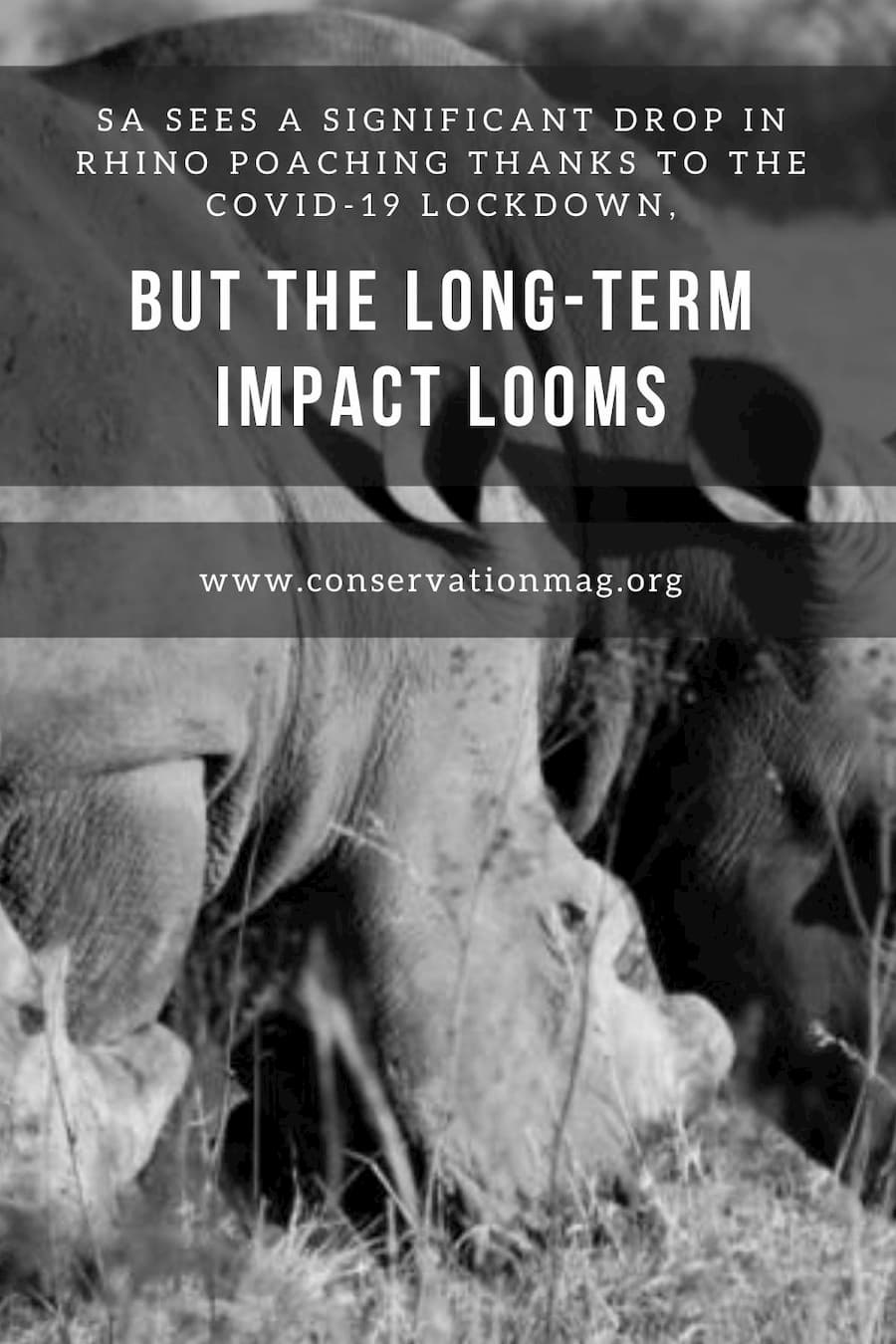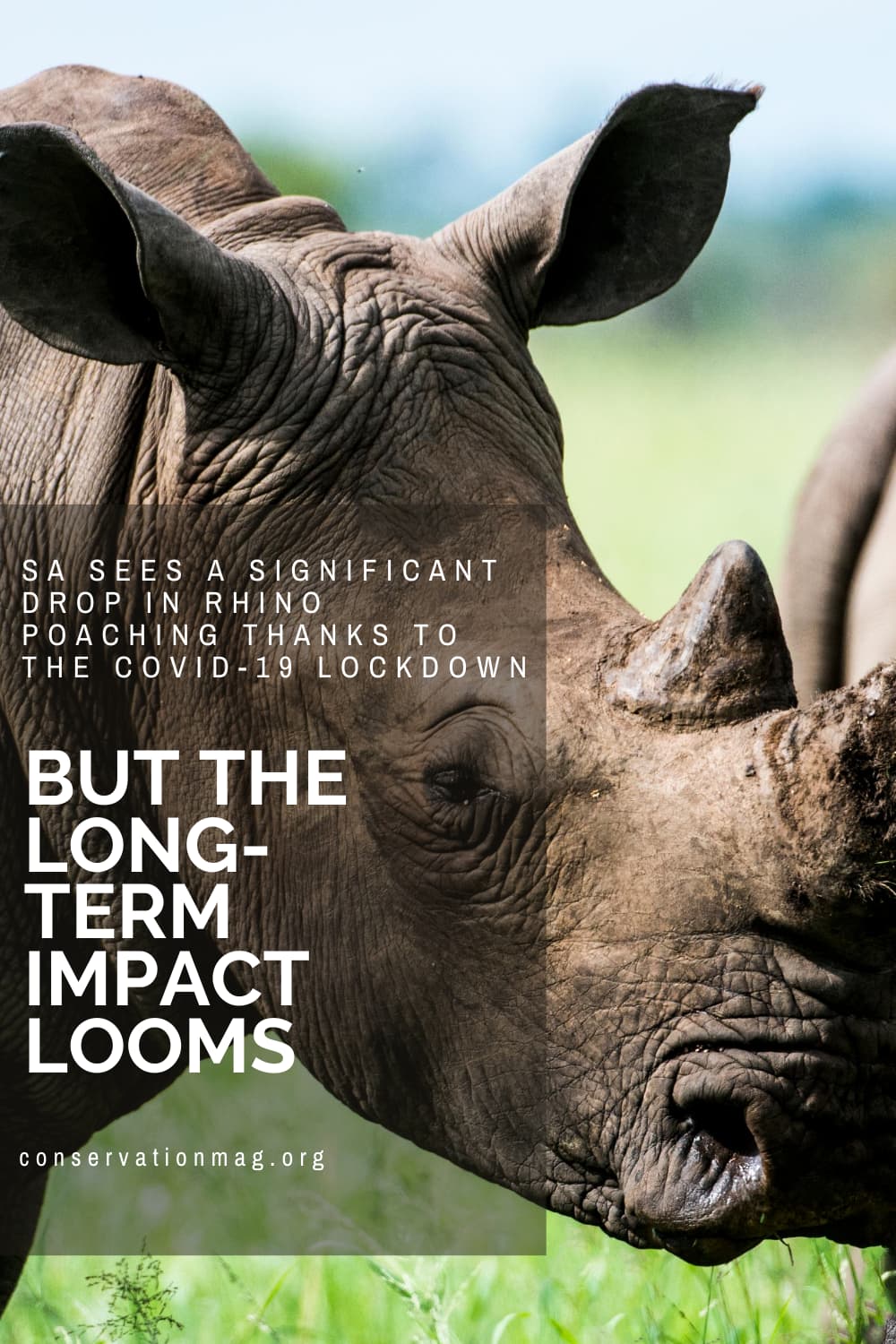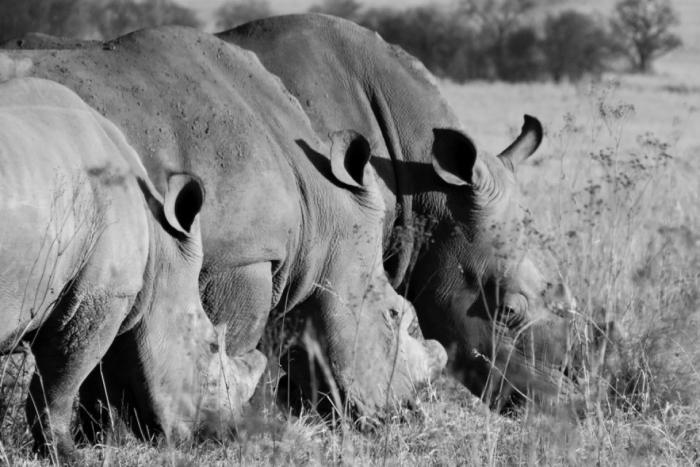While many South Africans are bemoaning being stuck at home in a nationwide lockdown, rhinos may just be breathing a heavy sigh of relief.
This because due to the Covid-19 lockdown, South Africa has seen a significant drop in rhino poaching, according to poaching numbers by the Department of Environment, Forestry and Fisheries (DEFF) released last week.
The DEFF revealed that a total of 14 rhino were poached across the country in April 2020, with the fewest rhinos poached in the Kruger National Park in a single month since September 2013 – and a significant drop compared with April 2019 when 61 rhino were poached nationwide. The number also shows a significant drop from March 2020 when the lockdown was enforced with 46 rhinos killed.
The main reason: the lockdown could have led to a disruption to poacher supply chains thanks to national travel restrictions as well as limitations placed on people moving across the country.
“We believe that the closure of our borders and the complete shutdown of international air travel removed the keyway that syndicates used to supply horn to transit and consumer countries,” said Barbara Creecy, Minister of DEFF in a press release on 22 May.
The fight against rhino poaching in South Africa has seen consecutive declines in the last five years, reports News24. In 2018, 769 rhinos were killed for their horns, in 2019 564 rhinos. A concerted effort by government and private parties has beefed-up anti-poaching strategies incorporating technology and innovative on-the-ground strategies to support early detection and follow-up operations.
While the news may have come as an unexpected positive, Dr Jo Shaw, Senior Manager: Wildlife programme with the WWF-SA, says there may be more pain to follow.
“Of ongoing concern, is the impact of a decline in tourism numbers on park revenue to cover operating costs and the need to find alternative funding mechanisms to keep our protected areas running into the future,” said Shaw.
The long-term impact of lockdowns on the wildlife economy remains to be seen. The wildlife economy is vital to the conservation and the very existence of many of the people living in the vast communities adjacent to conservation areas.
Travel and tourism account for 10.3% of global GDP, which makes the sector larger than agriculture. Wildlife tourism supports 21.8 million jobs across the world or 6.8% of total travel and tourism jobs. In Africa, that percentage is much higher in Africa, at 36.3%.
Read more: The Devastating Effects of COVID-19 on African Wildlife Conservation
As lockdowns continue to lag on, many lodges across the continent are having to cut jobs and reduce staff to stay afloat as tourism dries up.
It serves to note that despite the drop in poaching during lockdown DEFF says incursions into the Park by rhino poachers continue. Rangers are also in a constant battle to remove hundreds of snares meant for trapping bushmeat, especially along the Kruger’s western boundary. The DEFF made mention that bushmeat poaching had not increased because of the lockdown, but the threat is imminent.
“It’s notable that restrictions on travel appear to have had a dramatic impact on the trafficking of rhino horn and efforts should be made to identify ways to continue to disrupt these networks after the lockdown,” said Shaw
Main image by Adriaan Buys
Shop for a cause
Shop on amazon.com | amazon.co.uk




